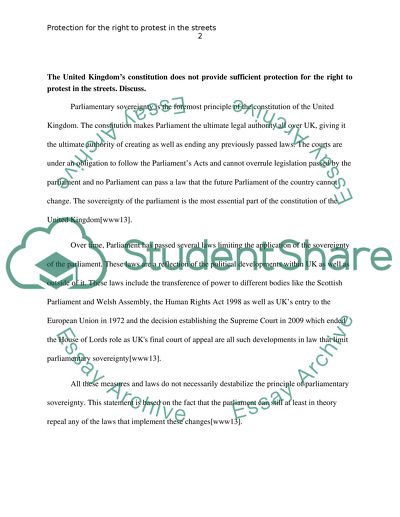Cite this document
(“The United Kingdoms constitution does not provide sufficient Essay”, n.d.)
The United Kingdoms constitution does not provide sufficient Essay. Retrieved from https://studentshare.org/law/1612978-the-united-kingdoms-constitution-does-not-provide-sufficient-protection-for-the-right-to-protest-in-the-streets-discuss
The United Kingdoms constitution does not provide sufficient Essay. Retrieved from https://studentshare.org/law/1612978-the-united-kingdoms-constitution-does-not-provide-sufficient-protection-for-the-right-to-protest-in-the-streets-discuss
(The United Kingdoms Constitution Does Not Provide Sufficient Essay)
The United Kingdoms Constitution Does Not Provide Sufficient Essay. https://studentshare.org/law/1612978-the-united-kingdoms-constitution-does-not-provide-sufficient-protection-for-the-right-to-protest-in-the-streets-discuss.
The United Kingdoms Constitution Does Not Provide Sufficient Essay. https://studentshare.org/law/1612978-the-united-kingdoms-constitution-does-not-provide-sufficient-protection-for-the-right-to-protest-in-the-streets-discuss.
“The United Kingdoms Constitution Does Not Provide Sufficient Essay”, n.d. https://studentshare.org/law/1612978-the-united-kingdoms-constitution-does-not-provide-sufficient-protection-for-the-right-to-protest-in-the-streets-discuss.


